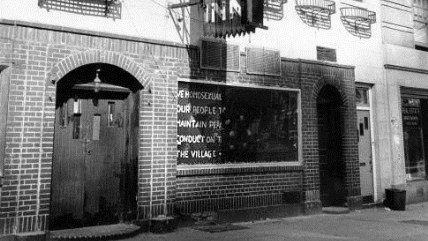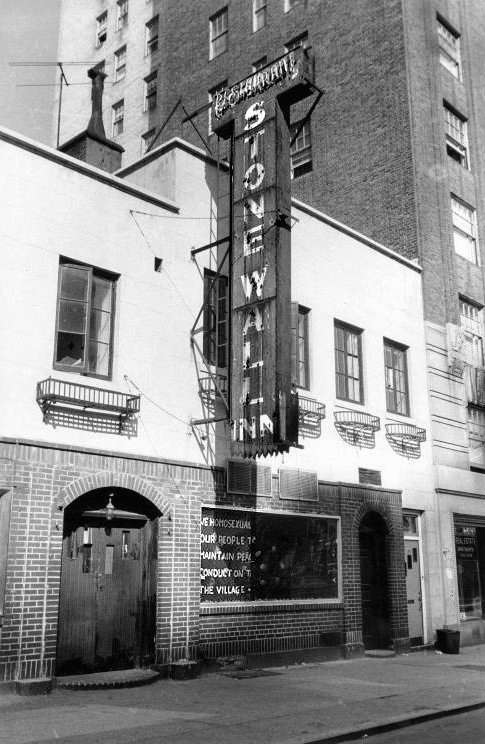Memorialize Stonewall by Remembering It Was About Fighting Government-Endorsed Punishment
Learn from history and stop trying to use the law to hurt others.


The gay, lesbian, bisexual, and transgender civil rights movement was historically fundamentally a fight for the right to free association. The right to hook up, the right to start families and have marriages legally recognized, the right to serve in the military—these pushes all originate from the concept that gay and transgender folks should be able to operate from the same rules of association as everybody else without the intervention of government authority or the sanctioning of punishment for those who make different relationship choices from the heterosexual majority.
It's an important reminder as some loud voices want to now use government authority and sanctioned punishment against those—like cake bakers or photographers—who want to exert the same right of association to say no to gay people.
It's worth bringing up now not just because of the current extremely punitive direction the culture war is taking, but because President Barack Obama's administration is looking to make a national monument out of the Stonewall Inn in Greenwich Village in New York. The location was ground zero for the Stonewall riots in 1969, where gay and transgender citizens fought back against raids from police.
It was a fight against the government. It was a fight against a majority who wanted to punish them with jail sentences, fines, and public humiliation for demanding the right to live their lives the way they chose. From The Washington Post:
"We must ensure that we never forget the legacy of Stonewall, the history of discrimination against the LGBT community, or the impassioned individuals who have fought to overcome it," [Rep. Jerrold] Nadler, who has co-authored legislation that would make it a national park, said in a statement. "The LGBT civil rights movement launched at Stonewall is woven into American history, and it is time our National Park system reflected that reality."
The president described Stonewall as a critical event in the nation's social progress during his second inaugural speech, reflecting the idea "that all of us are created equal," and alluded to it again when celebrating the 50th anniversary of the march on Selma, Ala.
Interior Department spokeswoman Amanda Degroff said Obama "has made clear that he's committed to ensuring our national parks, monuments and public lands help Americans better understand the places and stories that make this nation great" — though at the moment the administration has no official announcement on the designation.
"Discrimination" in this case isn't turning away gay people from jobs or hotel rooms or leases (though certainly that happened at the time as well—often with the encouragement of the government); it was really "abuse." It was legalized violence against gay men and women, with beatings and jail time. It was the use of force to hurt people.
Stonewall should teach us not to use the law to cause harm to others—not to deprive them of their liberty or property—on the basis of making choices that we don't approve of. Sadly, that has not happened. We see religious people having their businesses threatened by the government for refusing to provide cakes or venues for gay weddings. We see transgender people threatened if they use what officials declare to be the "wrong" bathroom.
Ultimately, in the end, when faced with arguments and counterarguments and metaphors and comparisons (many exaggerated) this is why I'm not willing to budge on letting private companies opt out of providing services, and it's why I'm not willing to budge on expecting the government (not the private sector) to acknowledge the choices of transgender people to live openly how they choose. I want to stop using the law to hurt people, even people who think my relationships are sinful, even people who actively want to discriminate against me. I don't even want to punish people who themselves want to use government force against me—I just want to stop them from doing so.
This is what America's gay history has taught me. Liberty requires restraining the power of the state, not seizing it and turning it against other people.


Show Comments (124)